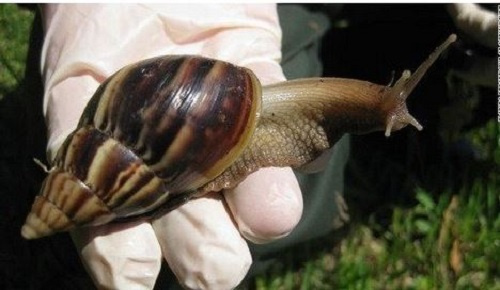
Ghana needs to capitalize on the snail value market
ACCRA, Sept 26 (NNN-GNA) — The Ministry of Environment, Science, Technology, and Innovation (MESTI) says the global snail value chain business has risen to $2 billion and Ghana needs to capitalize on the vast market.
While “snail meat” is regarded as a delicacy with great nutritional, medicinal, and cosmetic value in certain locations such as the Mediterranean region, Africa, or Southeast Asia, it is considered a taboo food in other cultures.
Oliver Boakye, Special Advisor to the Minister, MESTI, highlighted the economic importance of growing the snail industry in Ghana during the inaugural edition of the Snail Festival organized by the Council for Scientific and Industrial Research-Forestry Research Institute of Ghana (CSIR-FORMIG).
The festival’s theme was “Farm Snails, Eat Snails, and Market Snails,” with the goal of creating avenues for snail lovers to learn more about snail farming while networking.
As a result, a variety of snail foods were displayed, including Jollof rice with snails, yam chips with snails, snail meat pies, fufu with green soup, banku with snail stew, snail meat kebabs, and live snails.
Coupons ranging from GH₵5.00 and up were distributed to all participants, including basic and senior high school students, to be used to purchase any of the snail cuisines displayed.
Boakye, speaking on behalf of the sector minister, stated that irresponsible human activities such as deforestation, bush burning, improper pesticide application, and others posed a danger to the sustainability of the snail population.
He cautioned that if the tendency continued, and there were no adequate measures in place to safeguard and sustain the snail population, Ghana would soon lose its traditional delicacy of snail flesh.
“Adequate environmental protection is the bedrock of sustainable development. We have no option than to take a good look at the years of collecting snails,” he said.
He also stated that it was time for Ghana to prioritize snail farming, development, and promotion of snail-based industries as the primary means of sustaining edible snail species.
Prof Robert Kingsford Adaboh, CSIR Council Chairman, said snails contained rich nutrients such as iron and vitamins A and C that could improve vision and strengthen the human immune system.
He further mentioned that snail meat had a greater protein-to-fat ratio than other animal meals like chicken, beef, and others, and that “snail shells contained a high amount of calcium.”
However, he observed that a large decrease in the population of edible snails had caused an increase in its market price and praised the CSIR for turning a new page in technology transfer by organizing the Snail Festival and holding farmer training sessions.
Prof Paul P Bosu, Director-General of CSIR, said the CSIR-FORIG had trained approximately 3,000 farmers in snail farming to help preserve the snail population.
He urged the youth to pursue snail farming as a form of economic empowerment and emphasized that it would help solve Ghana’s high unemployment rate. — NNN-GNA






